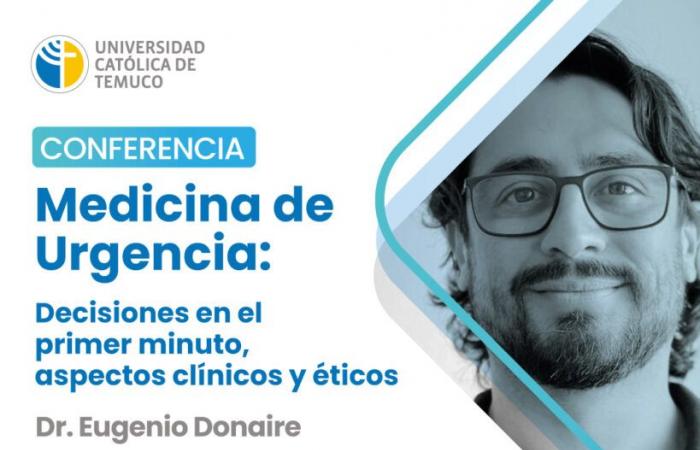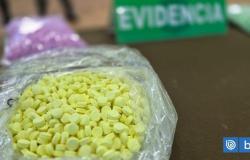
With more than a decade as head on duty in the central post, the referent in urgenciology will give an open conference on Monday, April 28 at the UCT.
In Chile, emergency medicine has experienced sustained growth in recent years, promoted by the increase in care demand and the expansion of specialized training programs. According to data published by the Chilean Emergency Medicine Society (Sochimu), emergency consultations increased by 45% between 2020 and 2024, from 2,965,666 attentions to 4,302,415. The report states that this rise responds to the postpandymia effects, population aging and the delay in care for waiting lists.
The analysis carried out by the Chilean Medical Magazine In 2025, he warns that many services face saturation, bed deficit, patient care in inappropriate conditions and a noticeable territorial inequality, especially in regions outside the macrozone centers, despite the fact that in the country, there are 14 training programs in emergency medicine.
With more than ten years as head of turn in the emergency department of the central post – the main reference center of Politrauma in the country – Dr. Eugenio Donaire Vera, a surgeon of the University of Chile and specialist in emergency medicine, lives these challenges directly.
UCT 2025 conference cycle
“Emergency medicine has grown exponentially in Chile,” Dr. Donaire holds. In his opinion, this growth expresses both in the increase in training programs and the increasingly frequent presence of urgenciologists in hospitals and services. However, he acknowledges that the differences between centers persist and directly affect the quality of the service: “The attention of one to another urgent can be very different. We want to give the best care to our patients, independent of the place where they are treated.”
The national reference in the specialty, will reach the H2 Auditorium of the San Francisco Campus of the Catholic University of Temuco (UCT), this Monday, April 28 at 17:30, to issue the conference “Emergency medicine: decisions in the first minute, clinical and ethical aspects”activity organized by the UCT School of Medicine within the framework of its 2025 medicine conferences.
In your presentation, you will address these key factors for making critical decisions during the first moments of care for a patient in serious condition. “The fundamental are three things: knowledge, because you have to know what one is doing; acquire practical skills, such as intubar or install a arterial line; and the third factor, which is the most important, is the way of communicating, the role of leader,” The specialist advanced.
For Donaire, this leadership must organize all members of the Health team, from nursing to students in practice and nursing technicians, where each one fulfills a fundamental role. “A good leader is not enough if there is no good team. The one who leads has to have temper and a proper way of communicating,” The specialist emphasizes. Therefore, he considers that all the emergency of the country should have a specialist who guides the team. “A general practitioner is very useful in an urgency, but must be led by an urgenciologist.”
“Health learning occurs by modeling. Sharing experience, mistakes made and ways to do things better, is essential”comments on the value of bringing this type of activities to regions. “If this can be transmitted outside Santiago, much better”add.
For the UCT School of Medicine, this visit represents a specific opportunity to enrich medical training from an ethical, technical and human perspective, and share it with the regional community, through its 2025 conference cycle. Unique space, in which since last year, national referents in Medicine expose their experience.





